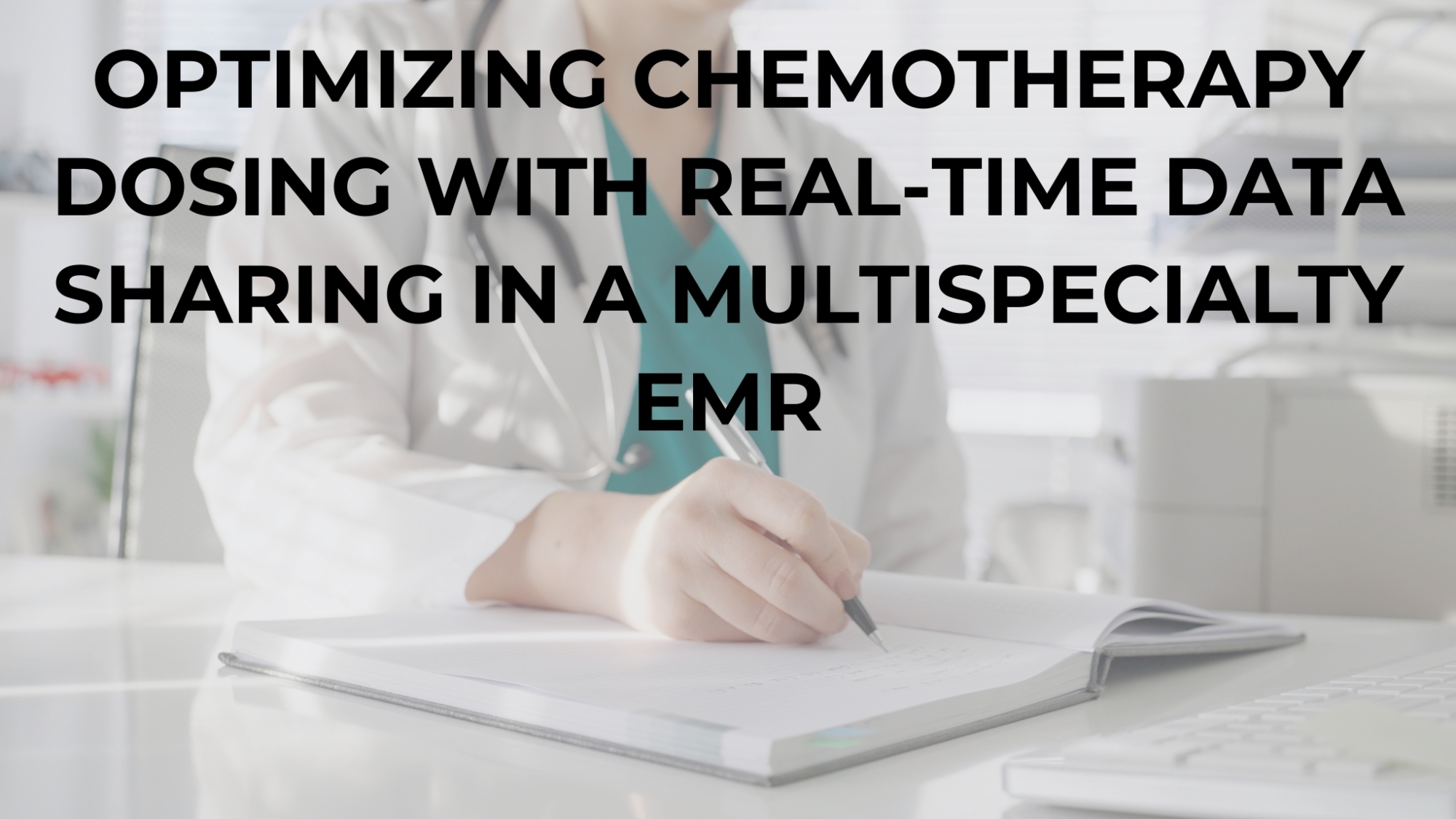Chemotherapy remains a cornerstone of cancer treatment. However, determining the optimal dosage for each patient is a complex process. Traditional methods often rely on a patient’s weight and height, but these factors alone don’t account for individual variations in drug metabolism. This can lead to under-dosing, compromising treatment effectiveness, or over-dosing, increasing the risk of severe side effects.
A multispecialty Electronic Medical Record (EMR) system emerges as a game-changer in optimizing chemotherapy dosing, leveraging real-time data sharing for more personalized treatment plans. Here’s how:
Breaking Down Data Silos:
Traditional healthcare systems often suffer from fragmented data storage. A multispecialty EMR centralizes patient information across specialties, including oncology, pharmacy, and genetics. This eliminates data silos and allows healthcare providers to access a comprehensive picture of the patient’s health.
Real-Time Insights for Informed Decisions:
A multispecialty EMR facilitates real-time data sharing. Oncologists can access:
- Detailed laboratory results: Real-time access to blood work allows for close monitoring of blood counts, liver function, and kidney function – crucial factors influencing chemotherapy dosing and potential side effects.
- Genetic testing results: Certain genetic variations can impact how a patient metabolizes specific chemotherapeutic drugs. Having this information readily available allows for personalized dosing adjustments to maximize efficacy and minimize toxicity.
- Medication history: A complete medication history, including other medications the patient is taking, is essential to identify potential drug interactions that could influence chemotherapy dosing.
Collaboration and Communication:
The multispecialty EMR fosters collaboration between oncologists, pharmacists, and other specialists involved in the patient’s care. Real-time data sharing allows for:
- Proactive Dose Adjustments: Pharmacists can analyze laboratory results and medication history to identify potential dosing issues and collaborate with oncologists to adjust the chemotherapy regimen as needed.
- Reduced Dosing Errors: Real-time access to accurate patient information minimizes the risk of errors during medication order entry and dispensing.
- Improved Patient Outcomes: By enabling informed dosing decisions and minimizing side effects, a multispecialty EMR contributes to better patient outcomes and a more tolerable treatment experience.
Beyond the Data: The Human Touch
While data sharing is crucial, a multispecialty EMR doesn’t replace the expertise of healthcare providers. It empowers them with the information needed to make informed decisions but doesn’t automate the process. Ultimately, a doctor-patient discussion and consideration of individual factors remain essential for tailoring chemotherapy treatment plans.
Conclusion:
Multispecialty EMR systems equipped with real-time data sharing capabilities offer a powerful tool for optimizing chemotherapy dosing. By providing a comprehensive view of a patient’s health and facilitating collaboration between healthcare providers, these systems pave the way for more personalized, effective, and safer cancer treatment. As healthcare continues to evolve, leveraging the potential of multispecialty EMRs will be fundamental in ensuring optimal patient outcomes in oncology.


